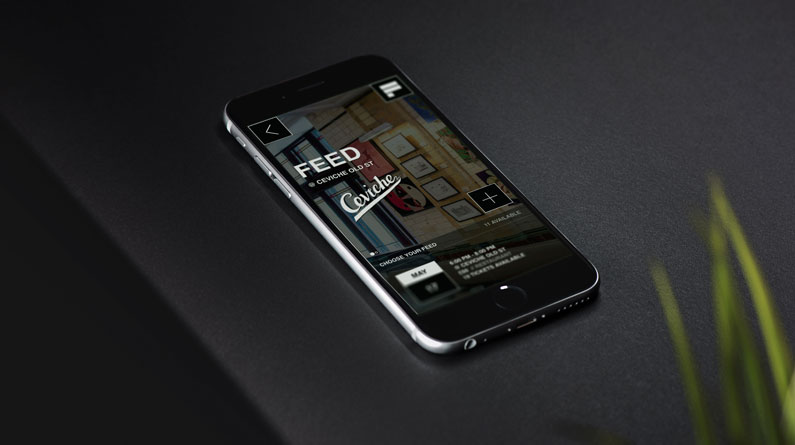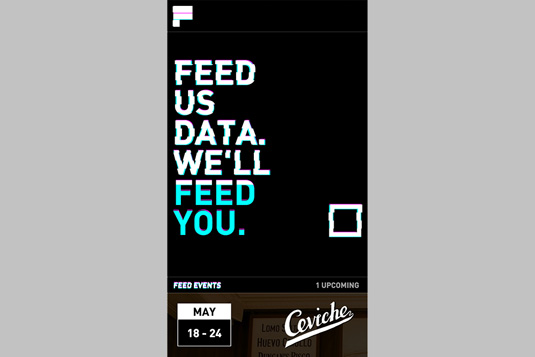Why the web browser is here to stay
George Wetz reveals four reasons why web designers won’t be traded in for native app programmers.
Daily design news, reviews, how-tos and more, as picked by the editors.
You are now subscribed
Your newsletter sign-up was successful
Want to add more newsletters?

Five times a week
CreativeBloq
Your daily dose of creative inspiration: unmissable art, design and tech news, reviews, expert commentary and buying advice.

Once a week
By Design
The design newsletter from Creative Bloq, bringing you the latest news and inspiration from the worlds of graphic design, branding, typography and more.

Once a week
State of the Art
Our digital art newsletter is your go-to source for the latest news, trends, and inspiration from the worlds of art, illustration, 3D modelling, game design, animation, and beyond.

Seasonal (around events)
Brand Impact Awards
Make an impression. Sign up to learn more about this prestigious award scheme, which celebrates the best of branding.

In the last few years there have been a string of articles calling time on the web browser. With the growth of mobile, so the argument goes, native apps are taking over. And it won't be long until we'll be saying RIP to browsers, and web designers will have been traded in for native app programmers.
I think they're wrong.
Hands up. I'm biased. I build web apps for a living. And I can tell you the web browser – and web designers – are here to stay. But not for all of the reasons you might think...
01. The web's getting faster and better
Connectivity speeds and coverage have increased – massively. At the same time, so has the processing capabilities of web browsers – part of a united effort by browser vendors (Google, Apple, Mozilla…) to better accommodate web apps.
This means applications that were restricted to desktop computers now run beautifully in browser – think Google Docs vs Microsoft Word, or Pixlr vs Photoshop.
True, they're not yet as rich the desktop experiences. But they're rich enough, and will get richer in time. As connection speeds and coverage continue to improve, expect the lines between online and offline to begin to blur.
02. Google backs the browser
The giants of technology are engaged in a browser versus native battle that shows no sign of letting up. Apple is pro-native. Google is pro-browser. And the browser is more than holding its ground.
Daily design news, reviews, how-tos and more, as picked by the editors.
As part of a new drive to fix the 'slow and clunky' mobile web, Google's just launched Accelerated Mobile Pages (or AMP). The project, which is designed to help content load instantly on mobile sites, has the backing of some of the world's biggest publishers, including BBC, Daily Mail, FT, Guardian and the Huffington Post.

On top of that, Google is heavily investing in the tools used to build web apps themselves. Its wholehearted sponsorship of AngularJS, and acquisition of Firebase tell us that Google puts web designers front of centre of its strategy for the future.
Facebook's getting in on the action too. With React Facebook uses, and has released to the public, its own framework for building web components that dramatically improve view performance (so all those sexy effects and transitions you design now look even sexier).
03. The web remains the best place the make things happen quickly
An amazing thing about building on the web is that when a big innovation comes along, roll out across the community can happen in a flash. Compare this to Apple's top-down approach of informing its developers about the tools they need to use.
The web's fluid, dynamic, open source, community-driven environment allows things to progress rapidly. The web – and the browser by extension – is a place that allows developers and designers almost unrivalled freedom and agility.
It's on web designers to keep with with the pace of change, and build experiences that harness the potential of new developments.
04. Rapid mobile growth means more work for web designers
So swift is the pace of change, that the talent and tools to build web apps are now fast encroaching on the native programming space. As mobile has grown, there's been a huge increase in the demand for native app developers, but simply not enough supply.
Ironically the solution from the big players, who have thousands of web developers but a shortage of mobile people, has been to find a way to build native apps with web technologies.

That's what we're now seeing with projects like React Native – a framework that lets you build native iOS and Android applications using CSS, Javascript and Chrome.
The fact that Google's Angular is now teaming up with React Native for its next major iteration, tells you how committed these companies are to helping today's web designers become tomorrow's mobile makers.
What of the web designers?
So, if this is how the browser looks in the future, what of us, the web designers? We account for a convergence of online and offline experiences.
We're less constrained by performance considerations, and more by our imagination. We know that although the future is mobile, it's not necessarily native.
Importantly, we know that the environment and tools in which we work change, fast. And we set ourselves up to take the opportunities come with it.
Words: George Wetz
George Wetz is CTO of Rebel Minds.
Liked this? Read these...
- 3 keys to a killer freelance design portfolio
- How to set every design project budget in 4 steps
- How to build an app: try these great tutorials

The Creative Bloq team is made up of a group of art and design enthusiasts, and has changed and evolved since Creative Bloq began back in 2012. The current website team consists of eight full-time members of staff: Editor Georgia Coggan, Deputy Editor Rosie Hilder, Ecommerce Editor Beren Neale, Senior News Editor Daniel Piper, Editor, Digital Art and 3D Ian Dean, Tech Reviews Editor Erlingur Einarsson, Ecommerce Writer Beth Nicholls and Staff Writer Natalie Fear, as well as a roster of freelancers from around the world. The ImagineFX magazine team also pitch in, ensuring that content from leading digital art publication ImagineFX is represented on Creative Bloq.
